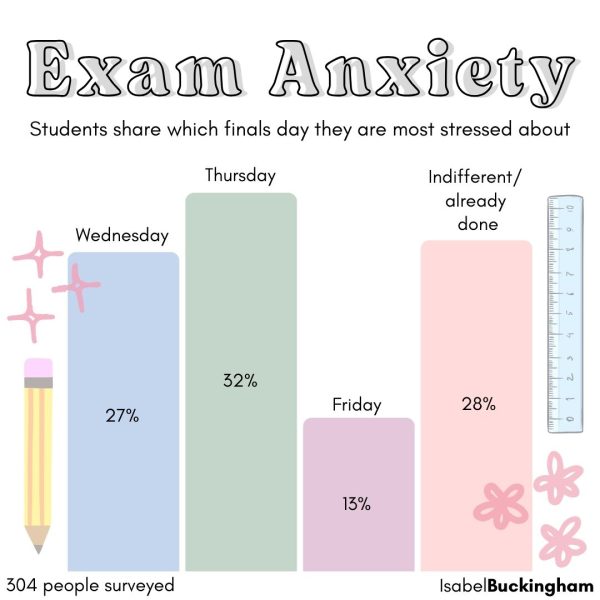Students describe how tracking features on apps impact their daily lives
The speed limit is 45. You’re cruising in the car blasting your favorite music when an alert bings on your phone. You’ve been caught speeding. Only going five over, the alert has already been sent to your parents.
Life360 is a family tracking app that allows parents to track their children’s locations at all times, regardless of if their phone is turned on or off. It also provides parents with other information like their children’s battery percentage, speed while driving and crime alerts in the local area.
Math teacher Hannah Skidmore said she used Life360 to help track the children she nannied over the summer. Skidmore said she first heard about it through one of her students, who complained about its “invasive” features.
“A year ago a student came in complaining that his mom had bought life 360,” Skidmore said. “He didn’t realize that he could also log in and see her information. She had been on him about using apps and driving, so he checked hers and she had been on her phone 30 times in one car ride.”
Tracking features have become more popular on social media apps. On Snapchat’s latest feature, they installed a “Snapmap,” allowing users to see where their friends are and when they last used the app. Users do have the option to turn this feature off, however with Life360, they do not.
According to Life360.com, the company is “not about people sneakily tracking their loved ones, we can’t stop anyone from uninstalling the app, and there’s no way to hide the fact that our app is installed.”
On the other hand, parents like Carnegie Mellon Professor, Lorrie Faith Cranor, are against using it. She stated in the New York Times Article, “Should You Track Your Teens Location?” that she doesn’t think kids should “feel like their parents are following them around all the time.”
Junior Libby Shiker said she has gotten in trouble as a result of the app. She said it has negatively impacted her life, giving her more stress about her parents and whereabouts.
“I constantly worry about my speed and if I’m somewhere I shouldn’t be,” Shiker said. “I’m also worried about the roads I take.”
However, junior Reed Krewson said that Life360 has positively impacted his life, allowing communication with his parents to be more open and simple. Krewson has had the app for only two months, but said it’s already made his life easier.
“It’s actually made [communication] a lot easier because I work, and I hang out with friends and I always used to text and tell my mom where I was,” Krewson said. “Now I don’t because she can just open up the app and see where I’m at.”
Shiker said she is worried about how the future of technology will impact future generations and children’s bonds with their parents.
“I think that apps like this can cause problems with kids and their parents, because kids will constantly think their parents don’t trust them — even if they aren’t doing anything wrong,” Shiker said. “I do understand the safety aspect of it though.”
Skidmore said she agrees that the tracking features on the app can be taken too far.
“I don’t think parents should get on it whenever they feel inclined to,” Skidmore said. “I think that’s when an imbalance of power comes into play, parents just thinking they can do it whenever.”
Like Skidmore, Shiker said both the parents and children need to find a balance when using apps like Life360.
“I think that parents should trust their kids until proven otherwise,” Shiker said. “I think that kids should be able to share their location whenever they want to. They should have that choice.”

This is Jenna Hope’s first year on The Standard. She is currently improving on her skills as a designer and photographer. Outside of newspaper, Jenna...




